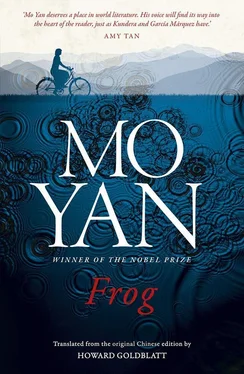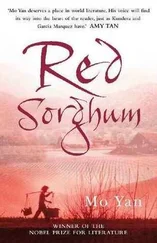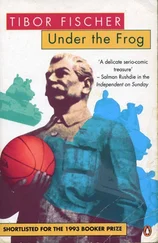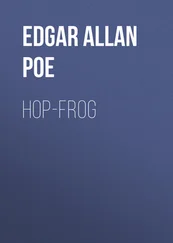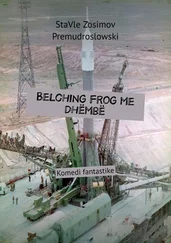When I was seeing you off at the Qingdao airport, you asked me to send you in letters the story of my aunt’s life. Although she is still alive and well, I could describe her life using such potent metaphors as ‘surging forth magnificently’ and ‘rife with twists and turns’. There are so many stories, and I don’t know how long this letter ought to be, so with your indulgence, I will put my meagre talents to use by simply writing until the time has come to stop. In this age of computers, writing a letter with pen and paper has become a luxury, but a pleasurable one, and I hope that as you read this, you enjoy a taste of olden times.
While I’m at it, I want to tell you that my father phoned to say that on the lunar twenty-fifth, red blossoms burst onto the tree in our yard, the one whose unique shape prompted you to call it a ‘talented’ old plum. Many people came to witness our blooming plum, including my aunt. My father said that a feathery snow fell that day, saturated with a redolence of plum blossoms that cleared the head of anyone who smelled it.
Your student, Tadpole
21 March 2002, in Beijing
Sensei, an old custom in my hometown dictated that a newborn child is given the name of a body part or organ. Nose Chen, for instance, Eyes Zhao, Colon Wu, Shoulder Sun… I haven’t looked into the origin of this custom, but I imagine it embodied the outlook of ‘those who are badly named live long’. Either that or it evolved from a mother’s thoughts that a child represented a piece of her body. The custom is no longer followed, as young parents have no interest in naming their children in such an unusual way. Local children these days are endowed with elegant and distinctive names of TV characters in dramas from Hong Kong, Taiwan, even Japan and Korea. Most of those who were named the earlier way have adopted more conventional names, most but not all. We still have Chen Er (Ears) and Chen Mei (Brow).
Chen Er and Chen Mei were the daughters of Chen Bi (Nose), my classmate and my friend. We entered Great Sheep’s Pen Elementary School in the fall of 1960. That was during the famine, and nearly all my strongest memories of the time deal with food. I’ve told the story of eating coal. Most people think I made that up, but I swear on my aunt’s good name it’s true.
The coal was part of a ton of high-grade ore from the Longkou Coal Mine, so glossy I could see my face in it. I’ve never seen the likes of it since. Wang Jiao (Foot), the owner of a horse cart, transported the coal over from the county seat. Wang, a man with a square head, a thick neck and a bad stammer, had a bright look in his eyes when he spoke, his face flushed from the effort. He had a son, Wang Gan (Liver), and a daughter named Wang Dan (Gallbladder). They were twins, and both were my classmates. Wang Gan was tall and well built, while his sister never grew to full size and remained a tiny thing — to be unkind, a dwarf. Everyone said she was so small because her brother had sucked up all the nutrition in their mother’s womb. After school was out, we ran over with our backpacks to watch Wang Jiao shovel the coal to the ground, where it landed crisply on a growing pile. He stopped to wipe his sweaty neck with a blue cloth he’d wrapped around his waist, and when he saw his son and daughter, he shouted: Go home and mow the grass.
Wang Dan turned and headed for home, struggling to keep her balance as she ran, like an infant learning how to walk; a lovely sight. Wang Gan backed up but did not run. He was proud of his father’s occupation. Children these days, even those whose fathers are airline pilots, are not as proud of theirs as he was of his. Wang drove a horse cart whose wheels threw up dust as it rumbled along; an old branded warhorse said to have distinguished itself by once towing an artillery piece was between the shafts, while a bad-tempered mule was up front in a harness, a mean animal known to kick and bite. That aside, it was astonishingly powerful and could run like the wind. No one but Wang Jiao could control it. Though many villagers admired his line of work, they kept their distance from the mule, which had already bitten two youngsters: Yuan Sai (Cheek), son of Yuan Lian (Face); and Wang Dan, who had been bitten and picked up by the head while playing in front of the house. We were in awe of Wang Jiao, who stood over six-two, with broad shoulders, and the strength of an ox. He could lift a stoneroller weighing two hundred jin over his head. But what really wowed us was his skill with a whip. That time the crazy mule bit Yuan Sai, Wang pulled back the brake and, with one foot on each of the shafts, brought the tip of his whip down on the animal’s rump with a crack that drew blood. The mule reacted by kicking out, but then began to quake as its forelegs buckled and its head hit the ground, mouth in the dirt, rump raised ready for another hit. It was Yuan Sai’s father, Yuan Lian, who came to its rescue. It’s okay, Old Wang, he said, sparing the animal further anguish. Yuan was our village’s ranking official, the Party secretary. Not heeding his word was not an option for Wang Jiao. After the crazy mule bit Wang Dan, we eagerly awaited another good show, but instead of striking out with his whip, Wang Jiao scooped up a handful of roadside lime and pressed it against the girl’s head as he carried her inside. The mule did not taste his whip this time, but his wife did, just before Wang kicked his son.
That crazy mule was one of our favourite topics of conversation. Skinny as a rail, the indentations above both eyes were so deep they could accommodate hen’s eggs. Its eyes emitted a sorrowful gaze, as if it were about to howl. How a skinny animal like that could exert such strength was a mystery. We were talking about that as we drew up to the mule. Wang Jiao stopped shovelling coal and glared menacingly, backing us up terrified. The pile in front of the school kitchen grew higher and higher, the load of coal on the cart kept getting smaller. We sniffed in unison at the strange aroma in the air, a bit like burning pine or roasting potatoes. Our sense of smell drew our gaze to the pile of glistening coal as Wang Jiao flicked the reins and drove his cart out of the schoolyard. This time we didn’t chase it out of the yard, as we usually did, even risking the bite of Wang’s whip when we tried to climb aboard to satisfy our desire for a ride. No, we kept our eyes glued to the pile of coal as we shuffled forward. Old Wang, the school cook, wobbled over with two buckets of water on his shoulder pole. His daughter, Renmei, was also a classmate who, much later, would become my wife. She was one of the rare children not burdened with the name of a body part, and that was because her father had attended school. As the one-time head of a commune animal-husbandry station, a careless comment had cost him his job and sent him back to his village. He observed us with a wary eye. Did he think we were planning to raid his kitchen? Go on, you little shits, get out of here! There’s nothing here for you to eat. Go home and suck your mothers’ teats. We heard him, of course, and even considered what he’d said. But he was just mouthing off. Already seven or eight years old, we were way past nursing at our mothers’ breasts. Even if we hadn’t been, our half-starved mothers, with their flattened chests, had nothing to give us. But we weren’t interested in arguing with Old Wang. Instead, we stood in front of the pile of coal, heads down and bent at the waist like geologists who have discovered an unusual rock formation. We sniffed the air like dogs searching for food in a rubbish pile. At this point I need to first thank Chen Bi and then Wang Dan. It was Chen who first picked up a chunk of coal and sniffed it, crinkling his brow as if pondering a weighty question. His big, high-bridged nose was a source of laughter for us. After a thoughtful pause, he smashed the coal in his hand against a much larger piece, like shattering glass, releasing a strong aroma into the air. Both he and Wang Dan picked up shards. He licked his to taste it and rolled his eyes as he looked our way. She copied him by tasting hers and looking our way. They exchanged a glance, smiled, and as if on cue, cautiously took small bites; they chewed briefly before taking bigger bites and chewing like crazy. Excited looks burst onto their faces. Chen Bi’s big nose turned red and was beaded with sweat. Wang Dan’s little nose turned black with coal dust. We were entranced by the sound of coal being chewed and shocked when they swallowed it. They’d actually swallowed coal! It’s good, guys, he said softly. Eat up, big brother! she cried out shrilly. Wang Gan picked up another piece and really started to chew, while she grabbed a large chunk and handed it to him. So we followed their lead, smashing the coal into smaller chunks and nibbling it at first to see how it tasted. Though it was sort of gritty, it wasn’t half bad. Chen Bi picked up a large chunk. Eat this kind, guys, he said helpfully, it tastes the best. He pointed to some slightly transparent, amber-like pale yellow coal. That was the source of the pine aroma. From our nature study class we’d learned that coal formed over millennia from buried forests. Our teacher for that class was our principal, Wu Jinbang. We hadn’t believed him or what the textbook said. How could green forests turn into black coal? We’d thought he and the textbooks were lying. But the smell of pine trees changed our minds. Our principal and the textbook were telling the truth. All thirty-five students in our class, except for a few absent girls, picked up chunks of coal and started chewing, crunching away, slightly mysterious looks of excitement on our faces. It was like improvisational theatre or a strange game. Xiao Xiachun (Lower Lip) turned a piece of coal over and over in his hand, but chose not to eat it, a superior look on his face. He didn’t eat it because he wasn’t hungry, he said, and that was because his father was the commune granary watchman.
Читать дальше
